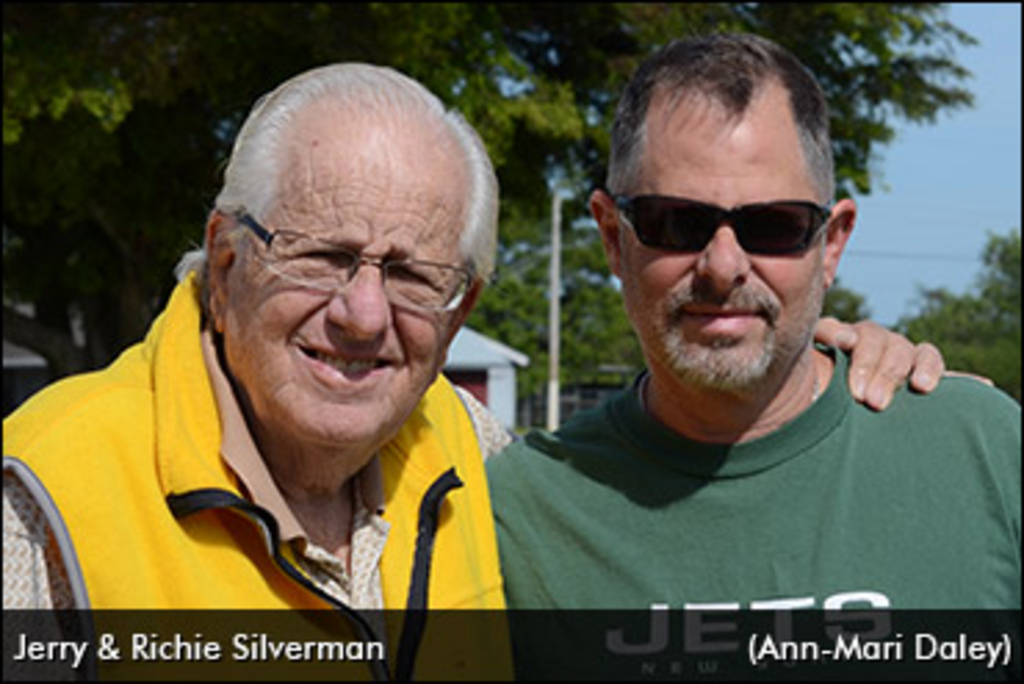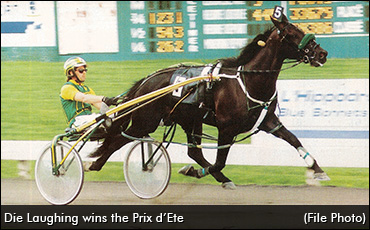
For six decades respected horseman Jerry Silverman has been campaigning champions, but the 78-year-old has decided the time has come to hang up the harnesses and retire from training racehorses.
Now living in Florida, the New Yorker made his decision to retire after qualifying back his two-horse stable consisting of stakes starters Another Transcript and Another Deposition.
“You know, I had two beautiful three-year-old trotters and I just felt that I was ready,” Silverman told Trot Insider. “I didn’t want to go through the stress and I couldn’t do justice to them shipping them all over the country, etcetera, etcetera. That basically was it.”
While Silverman has yet to determine his retirement plans, he is happy to share his wealth of harness racing knowledge.
“I don’t really have any immediate plans,” said Silverman. “It’s so sudden that I really don’t know. But eventually what I will probably do is give any input to my son Richie and any friends of mine if they’re looking for it. It looks like Richie has a potentially very nice bunch of colts so if he needs any help, my opinion, I’ll give it to him.”
Well known for his pedigree proficiency and optimistic outlook, Jerry Silverman has had success picking out and developing champions since early in his career, beginning with 1966 Triple Crown winner Romeo Hanover.
Silverman later became the sport’s first trainer to have a pacing male and pacing female earn $2 million in Die Laughing ($2,164,386) -- harness racing's first millionaire at age two and three -- and Glowing Report ($2,328,052), the richest daughter of Artsplace.
He also campaigned the likes of Meadowlands Pace winner Hilarion and Breeders Crown champion Masquerade. His success with the fillies was just as enviable. Among his stars were Rodine Hanover, the dam of stallion Real Artist, and Sweetheart winner Must See, the dam of Well Said.
Silverman has celebrated victories in many of the sport’s major races. The Hambletonian is the one race that has eluded him, although he did make it to the coveted event in 1988 with Rule The Wind, finishing second in the first heat to eventual winner Armbro Goal.
“One of my favourites was a trotter, Rule The Wind,” said Silverman, reflecting on some of his career highlights. “He wasn’t meant to be anything...and we raced and we got to the Hambletonian. It was very exciting.
 “And I don’t have to tell you about Romeo Hanover and Die Laughing. How could you not be high with the wonderful animals they were. So I would have to say they were my best. I had a filly, Hit Parade, which was special to me. I had a lot of fun. I had a lot of good times in this business.”
“And I don’t have to tell you about Romeo Hanover and Die Laughing. How could you not be high with the wonderful animals they were. So I would have to say they were my best. I had a filly, Hit Parade, which was special to me. I had a lot of fun. I had a lot of good times in this business.”
Silverman’s longevity in the harness racing industry is a testament to his remarkable horsemanship skills.
“He’s a Hall of Famer as far as I’m concerned,” said one of his old friends and fellow horsemen Bill O’Donnell. “He was and is very good. He had Romeo Hanover in the 60s. Every year he had great horses right up until recently with Razzle Dazzle, I guess. The 60s, 70s, 80s, 90s, 2000s -- five decades he’s been a major factor.”
That sentiment is echoed by another one of Silverman’s good friends, Arthur Weinburg.
“He only had a three-horse stable last year and they all made money," he said. "When you consider that someone started in the early 1960s and he’s around to 2013, that’s a very successful career. I personally feel, if you check all his credits, he deserves to be in the Hall of Fame.”
In addition to having a great eye for horses, Silverman’s work ethic and management skills has helped him successfully tackle the tremendous task of training a stable as large as 100 horses for a long period of time.
“His biggest asset was he required no sleep,” laughed O’Donnell. “He could operate on four hours of sleep day after day after day and looked as fresh as a daisy every day. Some people are like that, they could just go forever and he could handle the pressure. He was good at it. He worked hard, tirelessly. In the fall he’d be going to farm after farm looking at horses in Lexington and back to the races in the afternoon and sale at night. He was tough and loved the industry.
“He has always had good help around him and was a great manager,” continued O’Donnell. “He knew how to manage a horse and get them ready for the right type of races. And he brought Richie along slowly and they had great success together and his daughter Melissa is a good trainer too.”
“He cares about the horse. He pays attention to their needs,” noted Weinburg. “And he has always given the credit for all the success of the key horses he had to the people that worked for him.”
For Silverman, it’s those horses and people that made his training career so enjoyable.
“To tell you the truth, I’ve had so many good experiences and been so lucky through my career with my horses,” said Silverman. “And I’ve always connected myself with good people and I enjoy the good people and I enjoyed learning from them.”


JERRY SILVERMAN HI. JUST WANT
JERRY SILVERMAN HI. JUST WANT TO MAKE A CORRECTION ON THE FRONT PAGE OF WIKIPEDIA. JERRY SILVERMAN WAS NOT OWNER OF ROMEO HANOVER. LUCK STAR STABLES WAS. AS MY FATHER WAS JUST ONE OF THE OWNERS. JERRY IS A GREAT TRAINER.
Congrates Jerry on a great
Congrates Jerry on a great career!! you are the best and I look forward to attending your induction to racings Hall of Fame at Goshen!! Well we can only hope because I feel it a crime if you dont take your place among the greatest horsemen of all time!!,the credentials are there. All the best to you Jerry!!!also great job on the retirement story SC well done.
Enjoy your retirement Mr.
Enjoy your retirement Mr. Silverman you surely deserve it and what a year in Montreal with Die Laughing, enjoyed watching the race. Have a good day.